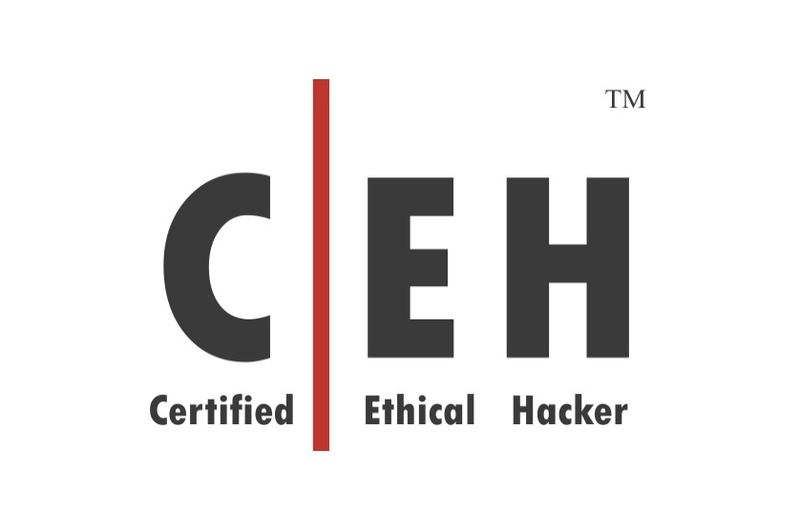Companies and organizations use the services of ethical hackers to safeguard the safety of their networks as harmful hackers become more active. Companies in practically every industry and sector, from government and healthcare to commerce, retail, transportation, and hospitality, are increasingly engaging ethical hackers to prevent cybercriminals from breaching networks. Employers want qualified personnel who can demonstrate their competence and play critical roles in protecting the organization’s digital assets.
A career as an ethical hacker might lead to employment or consulting. It necessitates the capacity to willfully access a computer with the owner’s permission, applying the majority of cyberattacker strategies. Professionals are expected to do security assessments, employ security testing procedures to identify network vulnerabilities, and implement countermeasures to eradicate found flaws. Following that, they notice any potential breaches and compromises.
In this guide, IT Exams will explore the CEH salary range and factors that can influence their earning potential.
What is a Certified Ethical Hacker?

The Certified Ethical Hacker (CEH) certification is a highly popular and well-recognized cybersecurity certification offered by the EC-Council, also known as the International Council of E-Commerce Consultants. A Certified Ethical Hacker is a skilled professional who understands and knows how to look for weaknesses and vulnerabilities in target systems and uses the same knowledge and tools as a malicious hacker, but in a lawful and legitimate manner to assess the security posture of a target system(s). The CEH credential certifies individuals in the specific network security discipline of Ethical Hacking from a vendor-neutral perspective.
The EC-Council provides two types of CEH certifications: CEH (Practical) and CEH (ANSI). Here are the primary distinctions:
- CEH (ANSI): The American National Standards Institute certifies this 4-hour, 125-question multiple-choice test.
- CEH (Practical): This is a 6-hour test in which applicants must “demonstrate the application of ethical hacking techniques such as threat vector identification, network scanning, OS detection, vulnerability analysis, system hacking, web app hacking, etc. to solve a security audit challenge.” “This is the next step to becoming a CEH Master after you have achieved your CEH certification,” explains the EC-Council.
To be eligible for the exam, you will need to meet certain CEH Certification Requirements. And If you want to give it a try to challenge yourself, you can refer to this website for the free CEH practice exam.
CEH Salary Overview
According to Glassdoor, the median or average compensation for an ethical hacker in the United States is $106,198. Your salary will be determined by a variety of factors, including your degree of experience, education, industry, employer, location, and whether or not you have applicable certifications.
As of November 2022, the following are the average US base salary for ethical hackers in the United States:
- Payscale: $79,618
- ZipRecruiter: $67,469
- Salary.com: $104,454
- Glassdoor: $86,49
Salary aggregation websites frequently rely on data given by site visitors. Some websites may have earned greater or lower-than-average salaries, influencing the estimated average.
Factors That Impact CEH Salary
The broad pay range for an ethical hacker shows that there may be numerous prospects for growth and higher pay based on certifications, skill level, education, location, experience, and expertise.

Experience
Experience is one of the most important variables in establishing your earning potential. Ethical hackers may be paid more for each year they work. Consider the annual median base pay by years of experience in the United States, as reported by Glassdoor:
- 0–1 year experience: $89,058
- 1-3 years experience: $96,814
- 4-6 years experience: $109,005
- 7-9 years experience: $121,620
Education
In general, better incomes are associated with more education. In the field of penetration and vulnerability testing, 67% of job postings require a bachelor’s degree or higher, and 23% require a master’s degree or higher. While it is ultimately up to the organization and your individual circumstances, obtaining a doctorate degree may lead to higher-paying roles as an ethical hacker.
Location
Another point to consider is that the average compensation in these top ten cities ranges by as much as 27% between San Buenaventura, CA and Jersey City, NJ, implying a high potential for positive wage variation in a CEH role. When weighing location and compensation, the cost of living should also be considered.
According to ZipRecruiter, with average incomes higher than the national average in these 10 cities, the chances for economic progress by changing locales as a Ceh look to be extremely lucrative:
| City | Annual Salary | Monthly Pay | Weekly Pay | Hourly Wage |
|---|---|---|---|---|
| San Buenaventura, CA | $119,477 | $9,956 | $2,297 | $57.44 |
| Federal Way, WA | $96,689 | $8,057 | $1,859 | $46.49 |
| Santa Clara, CA | $94,577 | $7,881 | $1,818 | $45.47 |
| San Francisco, CA | $93,871 | $7,822 | $1,805 | $45.13 |
| Washington, DC | $92,630 | $7,719 | $1,781 | $44.53 |
| Los Angeles, CA | $92,451 | $7,704 | $1,777 | $44.45 |
| San Jose, CA | $91,266 | $7,605 | $1,755 | $43.88 |
| Fremont, CA | $90,846 | $7,570 | $1,747 | $43.68 |
| Marysville, WA | $90,422 | $7,535 | $1,738 | $43.47 |
| Jersey City, NJ | $90,247 | $7,520 | $1,735 | $43.39 |
Industry
Your CEH income can also be affected by the industry in which you work. CEHs in the financial and banking industries often earn the highest income, with an annual salary of $103,000 on average. CEHs that work in the government or military earn a high salary, with an average annual salary of $93,000. CEHs in the education and nonprofit sectors often receive the lowest income, with an annual salary of $67,000 on average.
Certifications
Earning a certification in ethical hacking or cybersecurity can legitimize your talents to potential employers, potentially leading to a salary raise. Because you can use credentials like the CEH to boost your chances of securing a high-paying job as a certified security expert, you will most likely earn a better salary than non-certified professionals. A Certified Ethical Hacker degree earns a median base salary of $80,513 per year, according to Payscale.
CEH Job Titles and Salaries
A career in cybersecurity can lead to a variety of job pathways and roles. Here are some job titles to think about, along with their median base wages in the United States, according to Glassdoor (November 2022):
- Computer forensic analyst: $82,411
- Cryptography analyst: $80,129
- Cybersecurity analyst: $87,528
- Penetration tester: $97,559
- Cybersecurity consultant: $90,013
- Security engineer: $129,875
Computer Forensic Analyst
Computer forensic investigators assist in the retrieval of data from computers and other digital storage media. The data retrieved can then be utilized in criminal investigations or as evidence in cybercrime cases.
If using your technical skills to keep the internet safe seems appealing, a career in digital forensics could be a good fit for you. Aside from providing an ever-changing challenge, digital forensics positions are frequently well-paid and in high demand.
A computer forensic investigator collects evidence found on computers, mobile phones, and other digital devices in the same way as a forensic investigator gathers evidence from the scene of a crime.
A digital forensic investigator’s precise tasks will vary depending on the firm or agency and industry. These are some of the jobs you might be expected to complete (based on actual job listings):
- Retrieved data from both virtual and real devices.
- Gather and examine network intrusion artifacts as well as evidence of hostile network activities.
- Recreate the sequence of events that led to a compromise or breach.
- Collect, process, evaluate, and preserve digital evidence in criminal cases.
- Extract and analyze metadata
- Work with law enforcement, as well as legal, compliance, and human resources personnel.
- Ensure the digital evidence’s chain of custody.
- Write technical reports to document case findings.
- Identify potential dangers and make security suggestions.
- Testify at depositions, trials, and other legal proceedings.
Average salary: $82,411
Cryptography Analyst
The practice of writing and deciphering codes is known as cryptography. A cryptographer is in charge of turning plain data into encrypted data. Cryptography is a very old field. People have used codes to keep their secrets safe for millennia. The nature of the codes and the procedures used to encrypt and later decrypt data varies in modern cryptography.
Cryptographers play an important role in the information security defensive team. They research encryption methods in order to create innovative ways to secure data while also creating keys to the code so that the appropriate users can access the information they require. If you have strong statistical and analytical abilities, are interested in mathematics and codes, and appreciate the challenge of developing effective ciphers, cryptography may be a good fit for you.
Your day-to-day activities as a cryptographer may involve the following, depending on the organization for which you work:
- Create cryptographic code.
- Develop and optimize cryptographic algorithms for your organization’s systems.
- Enhance the performance of cryptographic capabilities.
- Work with data security analysts, security architects, and other cross-functional teams.
- Identify flaws in existing security solutions.
- Put cryptology hypotheses to the test.
- Give technical assistance to hardware and software engineers
Average salary: $80,129
Cybersecurity Analyst
Analysts in cybersecurity defend computer networks from cyberattacks and unwanted access. They accomplish this by attempting to predict and defend against cyber threats, as well as responding to security breaches when they occur. You play a critical role in securing your organization’s important data in this position.
As a cybersecurity analyst, you are responsible for preventing theft, loss, or unauthorized access to your company’s hardware, software, and networks. You could anticipate conducting a number of cybersecurity tasks in a small company or organization. You might specialize as part of a bigger security team in larger organizations.
While the day-to-day work of a cybersecurity analyst will vary depending on the firm, the following are some tasks and responsibilities taken from real job listings:
- Keep an eye on network traffic for any security issues or events.
- Investigate incidents and respond to situations in real time.
- Create thorough incident response reports.
- Install and run firewalls, encryption software, and other security technologies.
- Repair any flaws.
- Create and disseminate best practices for information security.
- Conduct threat analysis.
- Conduct risk assessments and penetration tests on a regular basis.
Average salary: $87,528
Penetration Tester

Penetration testers, often known as pen testers, simulate cyberattacks on a company’s computer systems and networks. These allowed tests aid in identifying security flaws and vulnerabilities before hostile hackers can exploit them.
As a penetration tester, you will undertake attacks on a company’s current digital systems in a proactive, offensive role in cybersecurity. These tests may employ a range of hacking tools and techniques to identify vulnerabilities that hackers could exploit. Throughout the procedure, you will meticulously document your actions and compile a report detailing what you did and how effective you were in breaching security protocols.
A pen tester’s day-to-day activities will differ according to the business. Here are some examples of frequent jobs and responsibilities you can encounter in this career, taken from real job listings:
- Test applications, network devices, and cloud infrastructures.
- Create and execute simulated social engineering attacks.
- Investigate and test various forms of assaults.
- Create penetration testing methodology.
- Examine the code for security flaws.
- Reverse engineer malware or spam.
- Concerns about document security and compliance.
- Improve efficiency by automating common testing approaches.
- Write technical and executive reports.
- Inform both technical workers and executive leadership of the findings.
- Validate security improvements with additional testing.
Average salary: $97,559
Cybersecurity Consultant
Cybersecurity consultants analyze problems, evaluate security concerns, assess risk, and execute solutions to protect companies’ networks and computer systems from cyber threats. When analyzing security systems and creating layers of protection in a rapidly evolving IT ecosystem, they must contend with numerous issues.
Cybersecurity consultants concentrate on risk detection, prevention, and response. Security consultant, computer security consultant, network security consultant, IT consultant, and database security consultant are other professional titles. Whatever the title, the work requires reviewing security systems while dealing with a wide range of variables.
The role’s emphasis varies, from engineering to customer service to senior leadership. Early-career cybersecurity workers may concentrate on device configuration or customer service. Advanced degrees and years of professional experience are more likely to be used to develop organizational information security plans. Cybersecurity consultants typically have the following responsibilities:
- Maximize efficiency in system protection, networks, data, software, and information systems to safeguard against potential threats.
- Perform vulnerability testing and security checks, as well as develop a threat analysis plan
- Continuous study on cybersecurity criteria is being conducted, while validation procedures, security systems, and emerging threats are being kept up to date.
- Monitor internet safety issues and collaborate with IT departments to provide innovative solutions
- Work together with other security staff to guarantee total client protection in all aspects.
- Provide technical data and test results together with practical preventative solutions.
Average salary: $90,013
Security Engineer
Security engineers design and build security solutions. They also implement and manage security controls to safeguard an organization’s data against cyber-attacks, data loss, or unwanted access.
It is your responsibility as a security engineer to keep a company’s security systems operational. Implementing and testing new security features, planning computer and network upgrades, troubleshooting, and responding to security problems are all possible.
As a security engineer, your daily tasks will vary depending on your firm, industry, and the size of your security team. Here are some tasks and responsibilities discovered in real security engineer job advertisements on LinkedIn to give you a better understanding of what the job entails:
- Identify security precautions to enhance incident response.
- Respond to security breaches.
- Coordinate incident response across teams.
- Conduct security audits and code audits.
- Create technical solutions for security flaws.
- Create threat models and research new attack vectors.
- Improve security through automation.
Average salary: $129,875

How To Prepare For The CEH Exam?
Once your application has been approved, you will be able to purchase an exam voucher from the EC-Council or another recognized training provider. You have three months from the time your application is approved to take the exam.
The EC-Council provides a formal training program. You can also choose another type of training approach or study on your own for the exam. The EC-Council also provides CEH exam preparation for $149, which includes access to the simulated and progressive testing for one year.
Other companies provide comparable training approaches. Koenig Solutions, for example, offers a 40-hour Ethical Hacking Certification Training Course for $2,750 (exam included).
We also provide the following CEH exam preparation tips:
- Read and comprehend the credible CEH study guides first and decide which CEH certification you should choose such as CEH v11 or CEH v12
- Use the CEH exam template to study
- Take CEH practice tests
- Use study guides and familiarize yourself with the exam
- Participate in CEH forums and become involved in the CEH community
- Examine the CEH Exam Syllabus
FAQs
What requirements do I need to become an ethical hacker?
Specific qualifications will vary depending on the employment, but certifications are often important in the ethical hacking scene. The CEH and CompTIA Security+ certifications are two of the most popular, with many businesses looking for them when hiring for these positions.
How hard is it to get a job as an ethical hacker?
It is simple but not easy to become an ethical hacker. There are numerous things to learn when using a programming language and tools to assist you in the industry. Furthermore, hacking is an ever-changing field, and you must keep up with the latest trends and tools.
What are the benefits of an ethical hacker career?
By mastering ethical hacking, you may help protect systems and data from risks and attacks. As an ethical hacker, you can: Conduct investigations and analysis of target systems to find any security or system weaknesses from the hacker’s perspective and recommend a solution.
How long is CEH good for?
Which is better CEH or cyber security?
The hacker in ethical hacking hacks to safeguard the system. Cyber security professionals, on the other hand, are not required to hack into the system. Their job is to protect the system by implementing all conceivable safeguards.
Which is better CEH or OSCP?
To summarize OSCP vs CEH, the latter is appropriate for IT professionals who aren’t interested in creating a career out of penetration testing and ethical hacking but want to broaden their knowledge of cyber security. The OSCP is intended more for professionals who want to pursue or advance their careers in penetration testing.
Conclusion

A data leak is becoming more expensive. With the average total cost of a data breach approaching $106,198 in 2023 and the time it takes to discover and cure a breach (207 days to identify and 73 days to remediate), certified ethical hackers are in high demand. However, you may only benefit from this one of the highest-paying IT certificates if you have completed ethical hacking certification and training, have skills and adhere to particular work principles.
We hope you now have a better understanding of CEH salary. It is also critical to keep current on the latest security risks and technology, as well as to continue expanding your skills and expertise. A career as a CEH may be both enjoyable and financially lucrative if you put in the effort.
[Sassy_Social_Share]


